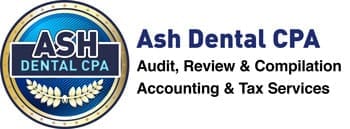Why Tax Planning for Dentists is Important

Tax Planning For Dentists
Tax Planning For Dentists | Tax planning for any business provides a proactive approach with financial and non-financial benefits. Service businesses and healthcare practitioners such as dentists would also benefit from proper tax planning.
If your dentistry business has been relying on accounting software tools, the complications of recent Covid 19 impact and tax changes would require much comprehensive planning than calculations.
First thing, tax planning is a strategic plan, not an operational or tactical. The same holds for the dentistry businesses. Your tax planning strategy must incorporate the challenges and unique business model in the industry.
Perhaps you’ll be better of discussing the strategy with a dental CPA or a professional with relevant expertise.
Here is our preview of why your Dentistry business may need a sound Tax Plan.
Tax Planning Is Strategic
If you think of tax planning for dentists as a tool of reducing the tax obligation only, give it a second thought. For a private business like dentistry, tax planning must be executed on a long-term basis.
For example, your entity structure will impact the tax returns for both your corporate and individual taxes.
Some key points where your tax planning will affect your business on an ongoing basis:
- Income taxes with a business ownership structure such as a C-Corp, S-Corp, LLC, etc.
- Employer Social security and Medicare taxes
- Federal Income Tax withholding
- Retirement planning
Your business expansion, employee retention, purchase of new supplies and equipment, all have tax implications.
The fee structure and your sales volume will impact your tax returns. In other words, think of tax planning as a core part of your business strategy.
Focus On The Core Of The Business
Perhaps it’s easier to say for every business, even important for a medical profession like dentistry. If you plan ahead of time, consult a tax specialist to make a comprehensive tax strategy, it will save you tons of time and cost.
Monetary savings wouldn’t weigh for much if that makes you focus on the core aspect of your business. Would it?
By proactively managing your taxes, you’ll be staying ahead of the competition. You wouldn’t want to receive a tax bill notice from your accountant in the last quarter of the tax year.
Tip: A good accountant can also help you determine the cost of the time you spend on your tax calculations.
Tax Planning For Dentists Will Help Your Practice Management
There are tons of financial and taxation aspects that consumemost of your time while running an already hectic business.
Tax planning and advisory can make you feel at home. But what’s in the practice management for tax implications?
Here are a few points where an effective tax plan can help you with your dental practice management:
- Capital finance structuring- (You already know the interest paid on a bank loan is tax-deductible).
- Business acquisition, partnerships, or merger tax implications
- The business expense and overheads management
- Sales and profit maximization
- Employer retirement and social security contribution planning
- Retirement and estate planning as a business owner (partner)
- Billing and insurance management
- Accounts receivables and collections
The list can go on as there are a number of business management benefits that come with proactive tax planning.
Tax Planning and Compliance
Again, the benefit of tax planning doesn’t come exclusively for your dental business only. Yet it remains one of the most important points for having an effective plan.
Regulatory compliance is often challenging and becomes a perplexing job if you can cope with the changing tax regulations.
Calculating intangible asset valuation and business Goodwill requires expertise. Service businesses such as dental practices rely heavily on business goodwill.
In a situation, like the currently pandemic caused recession, the business goodwill may significantly fall in a short time. Intangible asset amortization and tax deductions become complex in such scenarios.
Tax compliance regulations call for accurate income realization, whether you earned it with a passive investment or direct business income.
Similarly, your tax deduction regulations change over time. For example, you can currently deduct charitable contributions without itemizing the costs.
Have you ever been in a complicated position to calculate accurate estate and gift taxes? These expenses reduce your tax liability, but not all expenses are deductible under corporate tax returns.
Tax Planning Helps You in Retirement Planning
In addition, tax planning helps you with your financial life goals. Retirement planning remains the key to achieving financial success over time. Therefore, your retirement plan may affect the tax returns for you as an employer and your employees.
For example, a simple IRA plan and SEP come with different maximum contribution limits for an employer.
Also, tax planning requires long term planning. Furthermore, most of the financial planning and strategic business decisions directly affect the tax returns you file by the end of the year.
Learn More
Contact Ash Dental CPA to learn more about tax planing for dentists. We offer an array of accounting solutions for dental practices of all sizes. Call (508) 458-6789 or request an appointment online. New clients are welcome.
